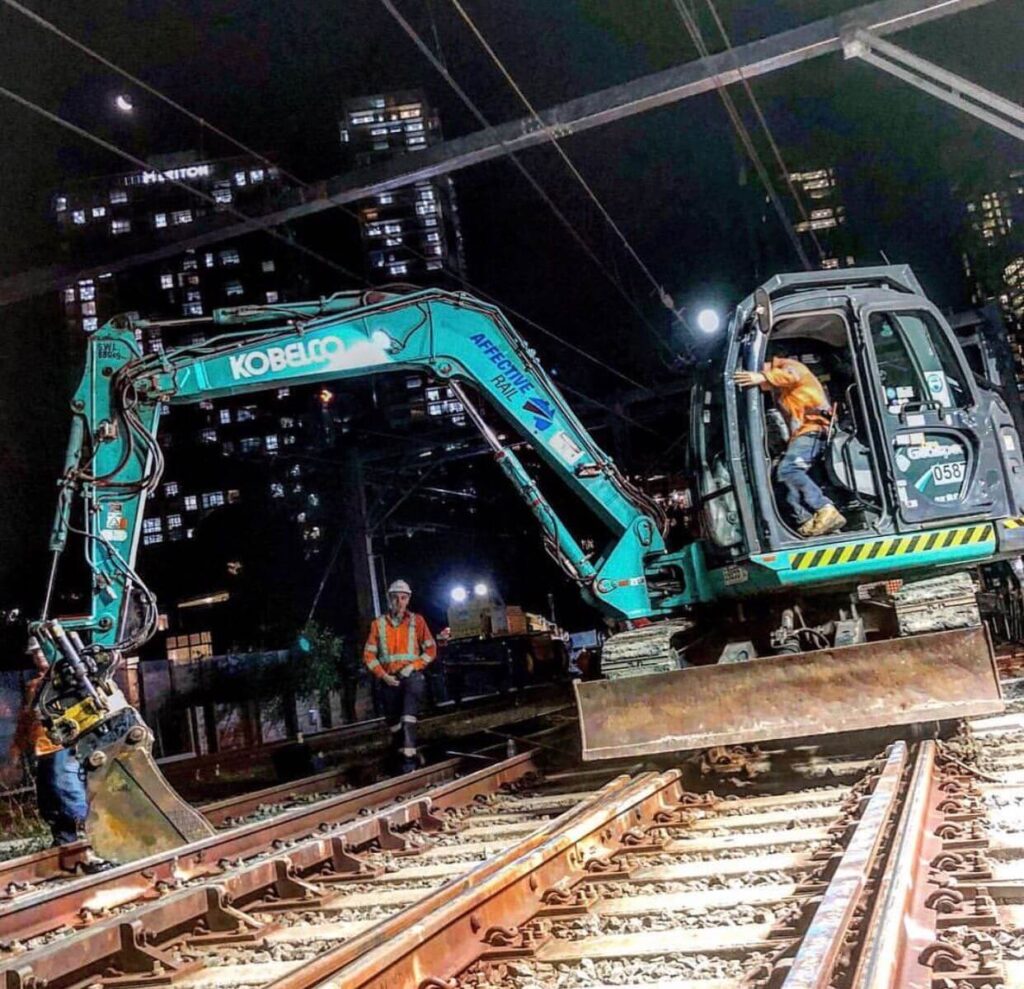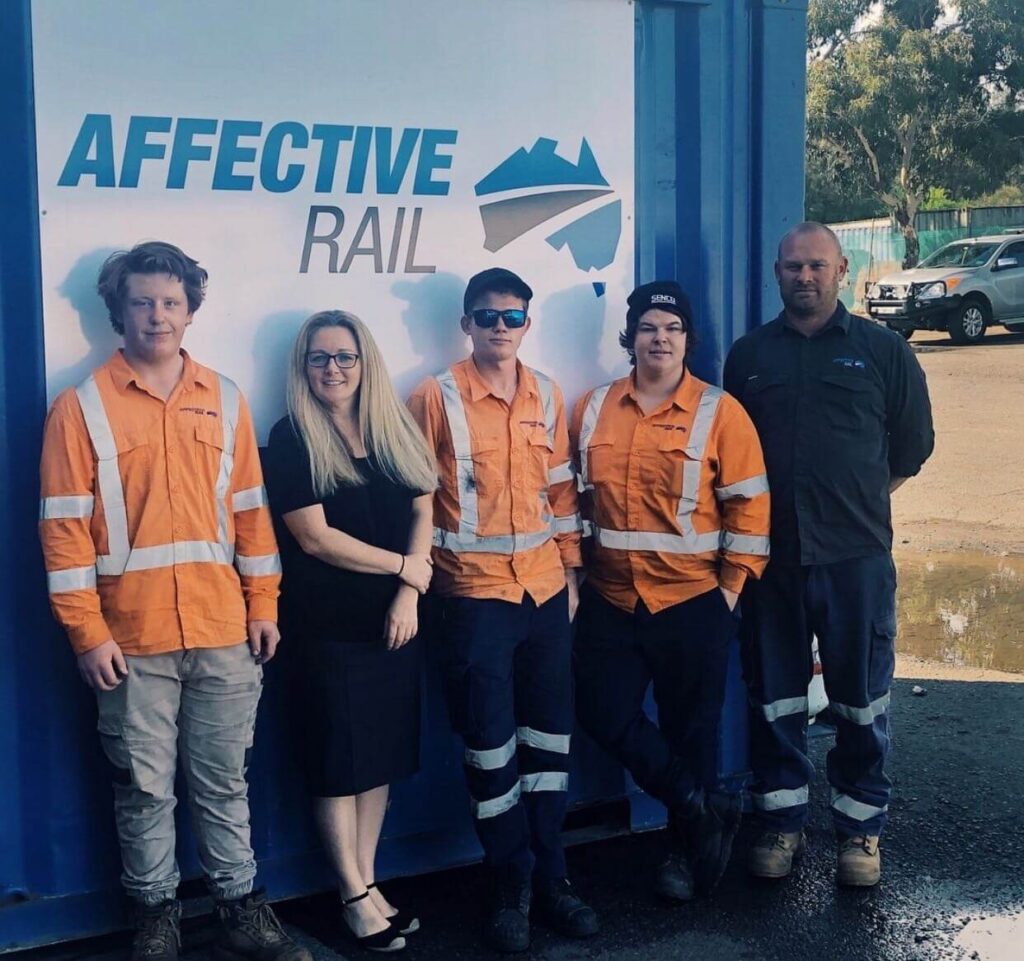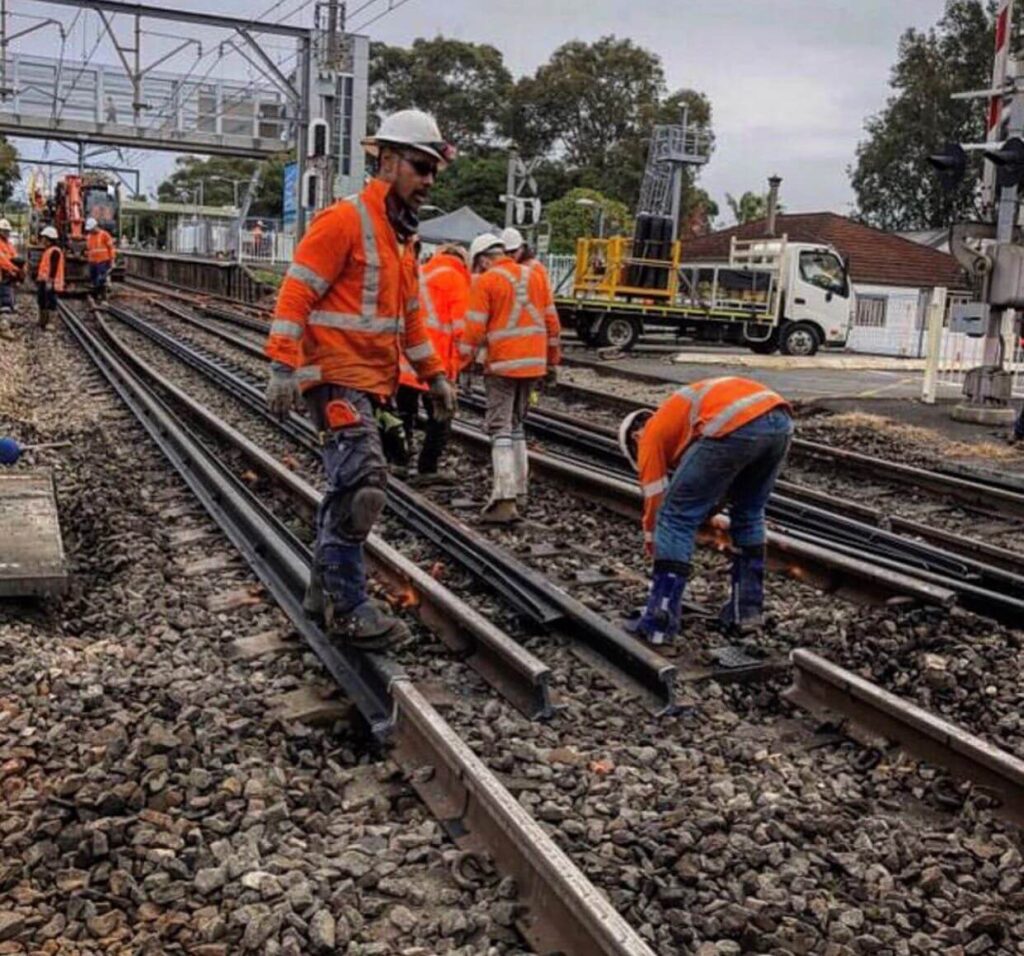The Smooth Operator Initiative
This initiative showcases leaders in the construction industry who are changing the way they operate in innovative ways with people, processes and technology. This week’s Smooth Operator is Scott Elliott, Director of Affective Rail.
Since 2015, Scott has been the Director of Affective Rail. With over 18 years of experience in the rail industry, Scott has grown the business and now operates across 3 offices in Wyong, Erskineville and Wollongong. Affective Rail has contracts with Sydney trains, TFNSW and ARTC. In the minor works market, Affective Rail also has Labour / Safe Working and Plant Hire Sections within the business.
Tell us about your journey within the rail industry
I started in the rail industry because my uncle worked on the rail tracks. It is very common for those working in rail to have a family connection that introduces them to the industry. I began as a fettler which is better known as a rail labourer nowadays and moved my way up the ranks.
To be honest, working as a rail labourer was a big shock. I underestimated how much physically hard labour was involved in the role. I had blisters the size of my palms from swinging hammers on the job but that was about 18 years ago. Now, there are more machines and technology-assisted processes that alleviate the workload of rail labourers. Nonetheless, it is still hard work. Specifically, long hours, weekend  and night shifts and interstate work in regional areas. I feel that this focus on physical labour intimidates people from exploring the rail industry for work. There is a saying in the construction industry, “I might not be smart but I can lift heavy things”. This perception really undermines the intensive training rail workers undertake to execute projects safely and successfully around the country. I really want to change that mindset. Working in rail isn’t just a job to lift heavy things, it is a real career opportunity. For me, working in rail did start as a job but I really have made a career from it. From a hammer swinger to a supervisor, project engineer and now as a director.
and night shifts and interstate work in regional areas. I feel that this focus on physical labour intimidates people from exploring the rail industry for work. There is a saying in the construction industry, “I might not be smart but I can lift heavy things”. This perception really undermines the intensive training rail workers undertake to execute projects safely and successfully around the country. I really want to change that mindset. Working in rail isn’t just a job to lift heavy things, it is a real career opportunity. For me, working in rail did start as a job but I really have made a career from it. From a hammer swinger to a supervisor, project engineer and now as a director.
The rail industry has given me these opportunities for growth and development without going to university. Sometimes, traditional methods of education aren’t the best fit for everyone. By showing initiative, commitment and drive I was able to work my way up to a project engineer. To be recognised as an engineer in my industry and by my peers without formal education in university is huge for me. I think it’s important to recognise there are alternative pathways to build yourself a career, and I am a big supporter of advocating that message to our next generation.
When I started in the industry, my supervisor was a huge influence on the type of manager I have become. He was a very good supervisor, a hard but fair leader and a big promoter of non-traditional educational pathways. Even though he was old school, he taught me the importance of training your crew properly.
How are you combating the challenges of labour shortage in the industry?
New South Wales is experiencing a huge influx of work. With all these projects lined up for the next 5 years, there is no slowing down in sight. As a Director, I do feel the challenges of the labour shortage. There is more competition and employee turnover in the industry is high. Which is why I really invest in training my employees. We are currently partnered with a local not-for-profit group, Central Coast Training Group (CCTG). With the CCTG we offer two traineeship streams:
– Certificate II and Certificate III in Transport and Distribution
– Certificate II in Safe Working
We need to engage the new generation of workers to fill our labour shortage gap. By offering onsite training in addition to these traineeships, we market rail work as a career opportunity as opposed to just an everyday job. When training we really look for an eagerness to learn and  initiative. When our trainees or employees show these characteristics we discuss next steps, growth opportunities and role development.
initiative. When our trainees or employees show these characteristics we discuss next steps, growth opportunities and role development.
In addition to traineeships, we also have a lot of full-time staff. With full-timers, you have greater visibility into the skill levels available for you when you tender and offer a strong foundation for your roster as your win more projects. This also provides our full-time staff with a safety net financially. The biggest challenge with labour shortage is the massive casual workforce. I do still have casual staff in my workforce but having a casual workforce to combat labour shortages has its own tough consequences. Casual workers could be working across many different contractors because they don’t know when their next job is coming. Consequently, they could be unavailable to work because of multiple allocations on the same day, or the employee puts themselves and others at risk by working from one shift to another, from contractor to contractor without realising the impacts of fatigue. I combat this, by having open conversations with my staff and hopefully by providing a supportive framework for our casual workforce to grow and transition to full-time when the opportunity avails.
How are you managing work-life balance at Affective Rail?
The rail industry is well known for its high divorce rate. Unfortunately, it is one of the downsides to a job that pays really well but rosters you away from your family. This is a hard reality of the industry. That’s why at Affective Rail, having a largely full-time workforce enables the team  to schedule important family celebrations on free weekends because they have the visibility into their roster weeks in advance. In this small way, I give my team a chance at work-life balance, which is really hard to achieve in such a demanding industry. For myself, achieving work-life balance has been hard. But now, I try to work my days around my kids and their school/sporting events, prioritising family but still giving my full commitment to the responsibilities I uphold at Affective Rail. It is still a work in progress, but I am getting there and with the initiatives I offer my staff, I hope they are making progress with work-life balance too.
to schedule important family celebrations on free weekends because they have the visibility into their roster weeks in advance. In this small way, I give my team a chance at work-life balance, which is really hard to achieve in such a demanding industry. For myself, achieving work-life balance has been hard. But now, I try to work my days around my kids and their school/sporting events, prioritising family but still giving my full commitment to the responsibilities I uphold at Affective Rail. It is still a work in progress, but I am getting there and with the initiatives I offer my staff, I hope they are making progress with work-life balance too.
With work-life balance comes work culture. At Affective Rail, we pride ourselves on teamwork, right attitude and culture-fit. As a Director, sometimes you need to let go of very skilled workers when they aren’t the best culture fit as they can negatively affect the business in the long term. Furthermore, I also hire for attitude first not skill because in this industry you can always train the right worker with a good attitude. These are the considerations I take when managing my team and ensuring that throughout the business there is a positive work culture in a supportive framework that enables work-life balance.
What are the key characteristics of a successful person? And how do those traits translate into your business?
For me, determination and goal-setting are crucial for success. Irrespective of your role, or where you rank in the business hierarchy. Creating achievable goals is how you propel yourself forward. As mentioned before, don’t just see yourself as a labourer or your work as just a job, set goals for your career journey so you get more fulfilment from your job and workplace. In this industry and in life in general, we live in a world that is fast-paced and constantly changing and that can be seriously overwhelming. So, I like to focus my energy on things I can control. This allows me to direct my energy on achievable goals instead of worrying about what-ifs.
In terms of the success of Affective Rail, it really is my team. You can be the best project manager, engineer or even just be the smartest guy in the room but if you don’t have the respect of your team or colleagues you can’t execute work effectively or efficiently. This is why creating a supportive, positive work culture is important when creating a business.

